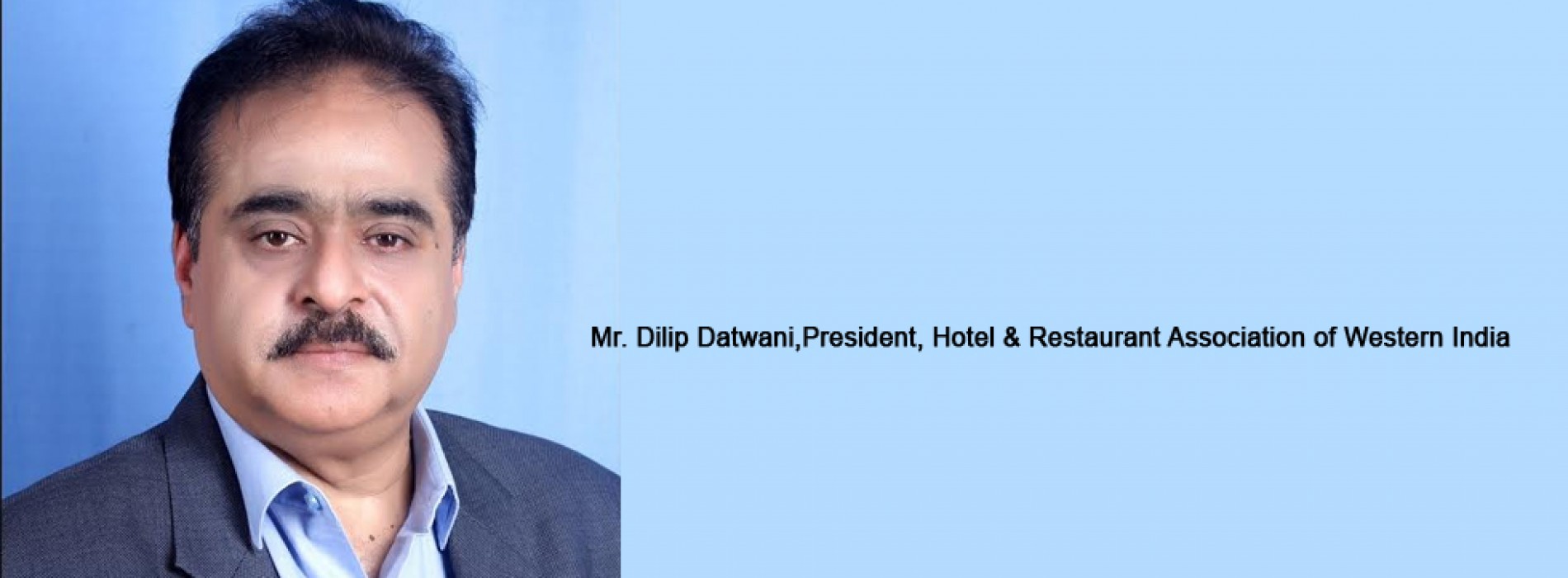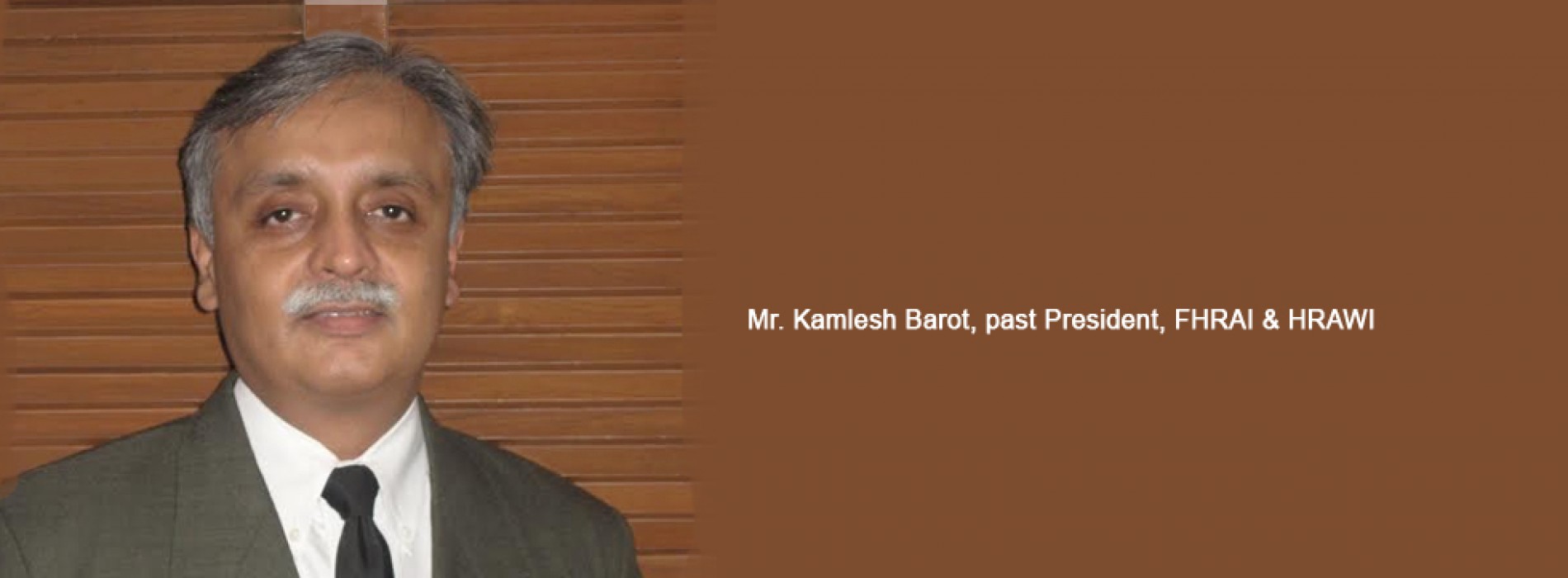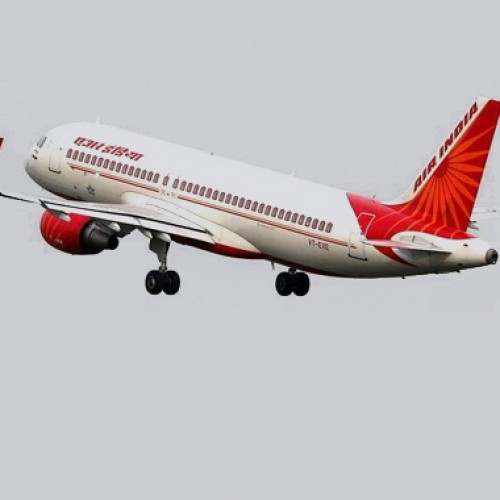“A 5% GST for Tourism could decrease current account deficit, increase GDP, & Double Up Forex Revenue”
In the recently concluded meet on Good & Services Tax (GST), the Government has declared a four tier structure of 5, 12, 18 and 28 per cent of which the service sector will be taxed at 18 per cent. To this, the Hotel and Restaurant Association of Western India (HRAWI) has warned that tourism could witness a major setback. Citing a recent study conducted by the Organization for Economic Co-operation and Development (OECD) on the impact of taxes on competitiveness of tourism, it has highlighted that most nations recognize tourism as a critical economic driver and follow a Tourism Rate (TR) which is lower than 50 per cent of the Standard Rate (SR) on other sectors.
“It is estimated that the lower GST rate of 5 per cent will contribute to a decrease in our Current Account Deficit, increase in the GDP, doubling up of both foreign and domestic travel and also doubling up of tourism induced employment, across each state and nationally,” says Mr Dilip Datwani, President, HRAWI. “India’s tourism competitors in South East Asia (excluding Japan and China) earn among themselves over $150 billion in foreign exchange and attract almost 100 million tourists annually. It is estimated that a GST rating of under 10 per cent will enable India to increase its price competitiveness and target an additional 10 per cent of this market in the short to mid-term, and up to 20 per cent of this market in the medium to long term. This implies an increase in our foreign exchange earnings from tourism from the current $20 billion to approximately $35 billion in 3 to 5 years and to approximately $55 billion in 5 to 7 years,” he adds.
The study also estimates that a GST rate of 5 per cent will more than double both foreign travel coming to India to 20 million tourists and domestic travel within India to 2.5 billion. “Indian tourism industry is estimated to be the size of around 2 lakh crores directly and generating an economic multiplier of up to three times the amount. It is driven by over 8 million foreign tourists and by over 1.3 billion domestic tourists. A lower GST has the potential to increase our total economic impact to over 10 lakh crores. This has the potential to increase our total share of GDP to more than 10 per cent against the present 5.5 per cent. The global average GDP contribution from tourism is 14 per cent while in China alone it is at 9 per cent,” adds Mr Datwani.
Tourism is one of the biggest revenue generators of Foreign Exchange to India. Every foreign tourist spending an additional day in the State of Maharashtra alone translates to an incremental revenue of Rs.600 crore which benefits not just the industry but also means additional revenue to the government coffers.
“We welcome the 5 per cent tax slab on food, which is a positive outcome of subsumed taxes for hotels and restaurants. However the 18 per cent levy on services or room revenue in our case, compared to our neighbouring countries which charge a Tourism tax between 4 to 7 per cent, rules out fair competition. Abroad, GST can have least slabs as they have minimum exclusions unlike ours. However, in India, breaking down the GST into tiers for simplifying the rates at which different goods will be taxed is not turning out to be favourable to tourism. A foreign tourist planning a trip across Asia may entirely skip India or spend fewer days in our country on account of these perceived high room rates because we also don’t refund taxes to foreigners like many countries do,” says Mr Kamlesh Barot, past President, Federation of Hotel and Restaurant Associations of India & HRAWI.
Hospitality is one of the biggest drivers of employment in India generating 5 crore jobs directly and indirectly. It absorbs over 7 per cent of skilled, unskilled and semi-skilled workforce. “It is also estimated that a lower GST for tourism will easily double the jobs in this sector of the employable to 9 per cent from the present 4.5 per cent. This will prevent unplanned urban migration and create livelihood across the hinterland. Tourism has the potential to increase contribution to employment to over 10 per cent. We are still hopeful that the Finance Minister will reconsider and provide a tax rate like the Tourism tax rate applicable in most countries,” concludes Barot.
You might also like
Air India planning to take Rs. 3,250 crore loan for urgent capital needs
Under a turnaround plan approved by the previous UPA regime, Air India is to receive up to Rs. 30,231 crore from the government subject to meeting certain performance thresholds. Air
Bhutan Visa
Explore Bhutan Visa Information On this page, you will get detailed information about Bhutan Visa and formalities. Visa Information for the Bhutan Visa Note & Fees Indian nationals willing to
Europe and Britain confirmed as travel hot spots for 2017
Trafalgar assures agents of stability in sales with 86% Definite Departures confirmed! There’s never been a better time to visit Europe and Britain and now Trafalgar is making it even










